Joint Annals and AMD Paper Development Workshop, Belgium
Joint in-person workshop. Registration and submission deadline: 1 March 2023.
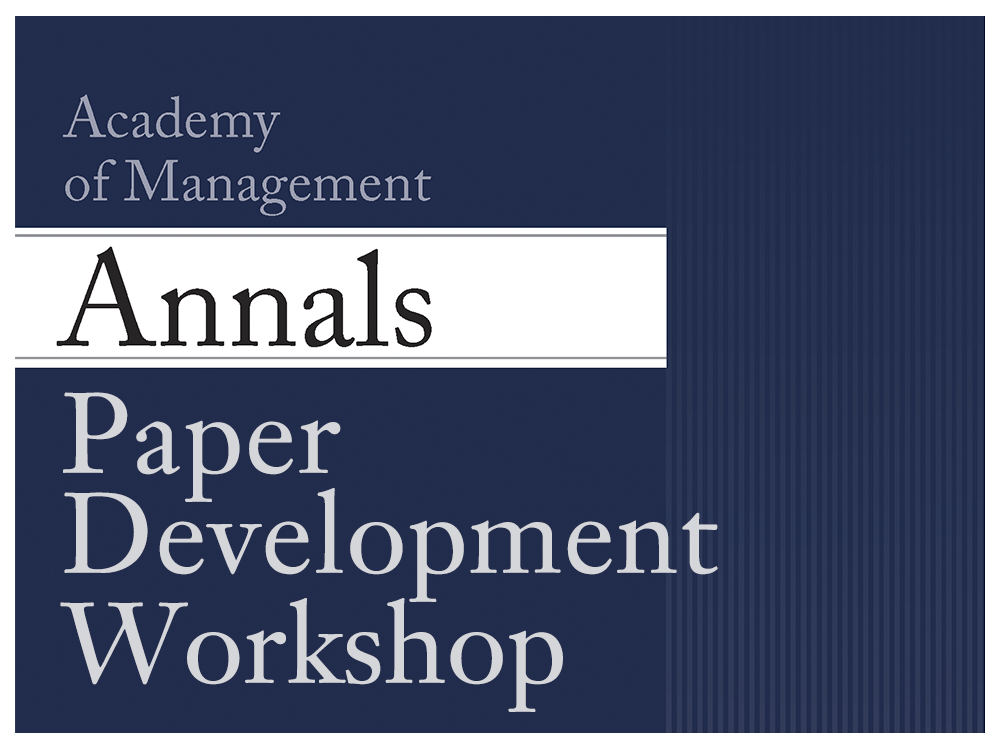 | 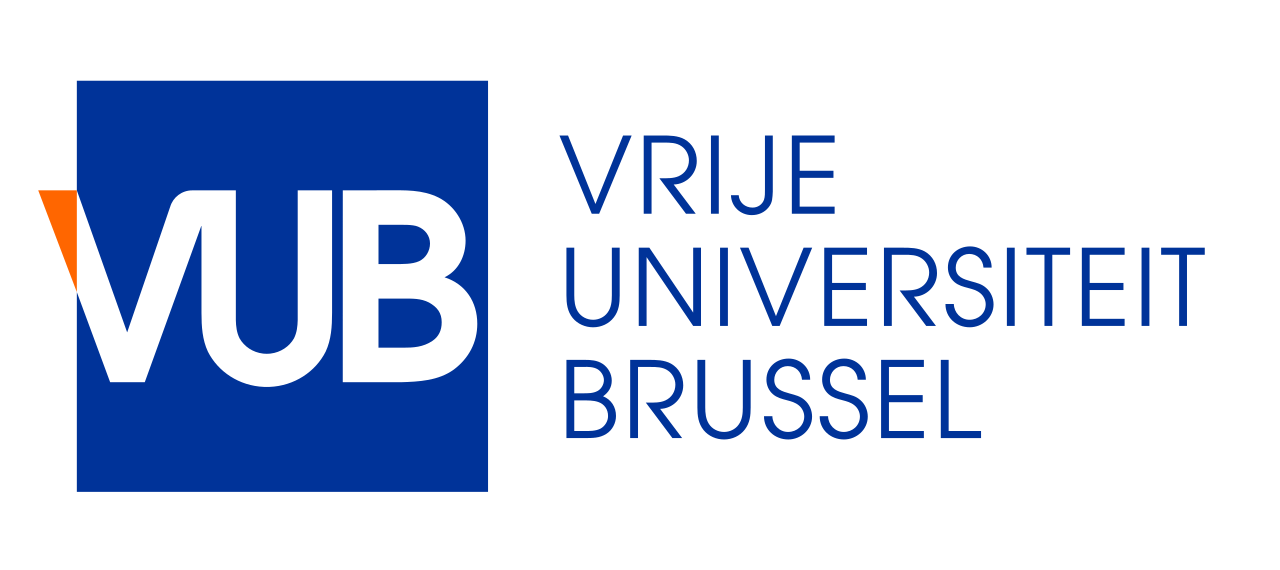 | 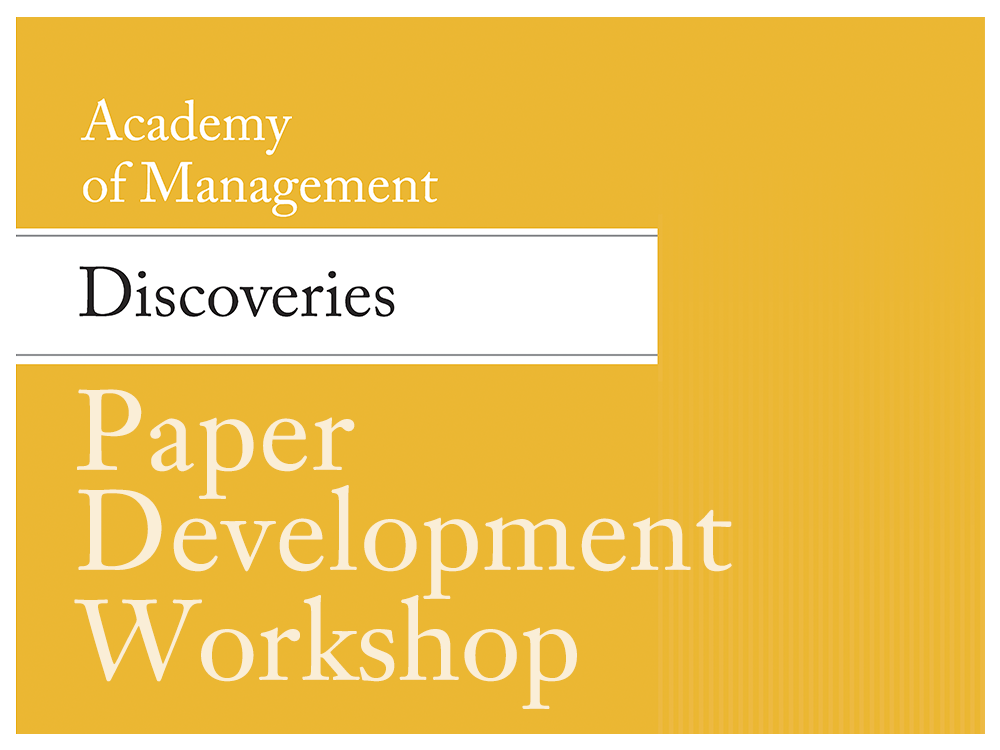 |
From the Beginning to the End: Exploratory Research to Integrative Reviews at the AOM Journals
In-person joint workshop hosted by Vrije Universiteit Brussel
Vrije Universiteit Brussel, Pleinlaan 2, 1050 Brussels, Belgium
5-6 April 2023
Led By
Kevin Rockmann, AMD and Matt Cronin, Annals
Local contact: Mehdi Montakhabi
Purpose and Agenda
This workshop is geared toward PhD students, junior scholars, and senior scholars who are interested in publishing in Annals and AMD. The hope is that this workshop will help participants develop well-crafted proposals and manuscripts suitable for submission to Annals and AMD, respectively.
Workshop Format
This will be a joint in-person workshop between the journals with this tentative format and timeline:
Day 1
- 10:00-12:00: AMD plenary
- 12:00-13:00: Lunch
- 13:00-15:00 AMD Workshop
- 15:30-17:30: Annals / AMD Combined panel
- 17:30-18:30: Networking
Day 2
- 10:00-12:00: Annals plenary
- 12:00-13:00: Lunch
- 13:00-15:00: Annals Workshop
- 15:00-15:30: Closing by Vice rector in research at Vrije Universiteit Brussel, Prof. Dr. Pieter Ballon
In each journal’s lecture and panel, the editors will provide general information about publishing in these journals, such as what makes a successful paper, the main reasons that papers are rejected, and strategies for addressing the core challenges that editors and reviewers see in rejected papers.
The combined session on Day 1 will provide an explanation of the differences between these two journals and other AOM journals.
Submission Information
Here is more specific information about submitting for each journal’s workshop:
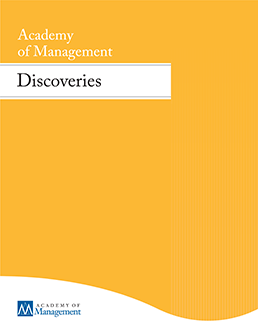
Academy of Management Discoveries (AMD)
Workshop Instructions
If you are interested in having your paper as part of the workshop for AMD, you should prepare a 2-5 page (double-spaced) abstract of your research that includes information on each of the following:
- The compelling phenomenon of interest
The abstract should clearly outline the phenomenon the researcher is interested in exploring. Exemplar quotes / examples / experiences can and should be used to enhance this description. The goal is to clearly situate the reader in the context where the phenomenon is present. - How existing theory fails to explain the phenomenon
The abstract should include prior research related to the phenomenon of interest. The goal here is to demonstrate why existing theory is absent, misguided, contradictory, or otherwise insufficient to explain the occurrence of the phenomenon. This section should end or otherwise contain one or more research questions. - The proposed methodology
AMD is a journal for empirical exploration. This section of the abstract should explain the proposed explorations and nature of the proposed data (if not already in hand). This may include, but is not limited to, the context, the participants, the datasets, and the variables. This section should also include a proposed analytical strategy.
The AMD breakout session requires that participants read the pre-workshop readings. We will match approximately 5 participants with an AMD Facilitator. These groups will then discuss the participant ideas and provide the participant with insight about how to move the exploratory research forward.
- Bamberger, P. A. (2018). AMD—Clarifying what we are about and where we are going. Academy of Management Discoveries, 4(1), 1-10.
- Rockmann, K. W. (2022). The Personal Argument for Making Exploratory Research Part of Your Research Portfolio. Academy of Management Discoveries, 8(3), 331-336.
- Rockmann, K.W., Bunderson, J.S., Leana, C.R., Hibbert, P., Tihyani, L., Phan, P.H., & Thatcher, S.M.B. (2021). Publishing in the Academy of Management Journals. Academy of Management Discoveries, 7(1): 1-9.
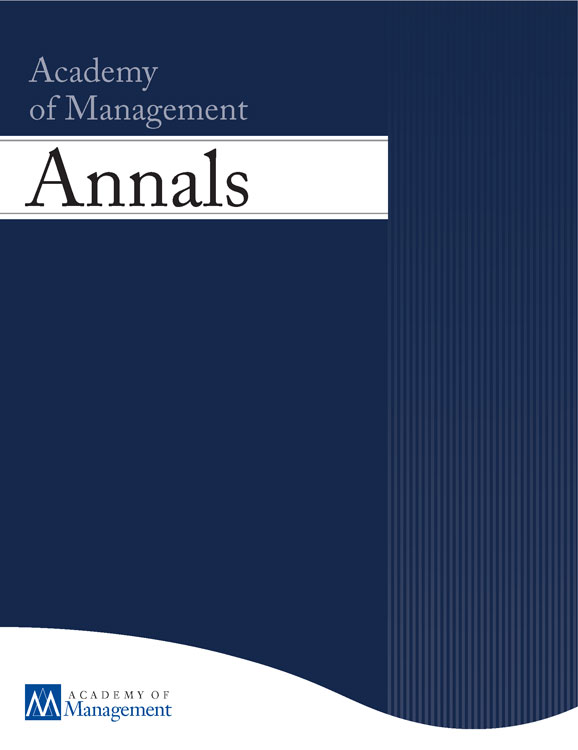
Academy of Management Annals
Workshop Instructions
If you are interested in having your idea be a focus of the workshop for Annals, you should come to the workshop with written answers to the following questions (try to answer these as succinctly as possible, so max 4 pages of single spaced text).
- What issue or problem domain will your review cover? Why is this an important issue or area of research? Is there a sufficient body of high‐quality empirical research to warrant a review?
- Related reviews: What prior reviews have been published on this topic? How will your review add value above and beyond what has already been done?
- Review scope and process: How will you set the scope of your review and conduct a comprehensive literature search? What will be your inclusion/exclusion criteria? What process will you use to analyze the literature to identify integrating themes and novel insights?
- New insights: What new insights are expected to emerge from your analysis of the literature? How will these new insights alter the trajectory of research in this problem domain? What implications and new directions will your manuscript offer for future research?
We will discuss the participant ideas in small groups and provide the participant with insight about how to clarify the paper idea or move the idea forward.
The Annals breakout session requires that participants read the following pre-workshop readings:
- Elsbach, K. D., & van Knippenberg, D. (2020). Creating high‐impact literature reviews: An argument for ‘integrative reviews’. Journal of Management Studies, 57(6), 1277-1289. https://doi.org/10.1111/joms.12581
- Cronin, M. A. & George, E. (2020). The Why and How of the Integrative Review. Organizational Research Methods https://doi.org/10.1177/1094428120935507
Optional Readings (examples of Annals papers for discussion):
- Carpini, J. A., Parker, S. K., & Griffin, M. A. (2017). A look back and a leap forward: A review and synthesis of the individual work performance literature. Academy of Management Annals, 11(2), 825-885.
- Nault, K. A., Pitesa, M., & Thau, S. (2020). The attractiveness advantage at work: A cross-disciplinary integrative review. Academy of Management Annals, 14(2), 1103-1139.
- Mohammed, S., Rico, R., & Alipour, K. K. (2021). Team cognition at a crossroad: Toward conceptual integration and network configurations. Academy of Management Annals, 15(2), 455-501.
Registration Information
Registration is required for all participants. You may register for any or all parts of the workshop. We will be conducting a rolling evaluation for abstracts beginning 1 January 2023. All participants must register by March 1, 2023.
To participate, please fill out this registration form.